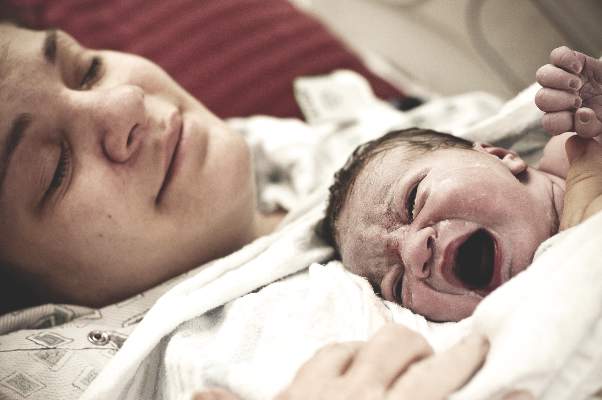User login
Joint Commission-accredited health care organizations looking to up their perinatal care credentials now can, thanks to a new Perinatal Care Certification program.
The program was developed by the Joint Commission in response to data from the World Health Organization that shows at least 1,200 American women die during pregnancy or in childbirth annually. An additional 60,000 women in the U.S. suffer near-fatal perinatal complications.
“The certification will give providers an unparalleled advantage when it comes to preparing mothers for labor and delivery, while helping mothers and newborns if complications arise,” Wendi Roberts, executive director of The Joint Commission’s Certification Program, said in a statement.
The certification program, which covers prenatal care through postpartum care, requires early identification of high-risk pregnancies and births, transfers for women and babies who require a higher level of care, and ongoing quality improvement processes.
The program is aimed at reducing maternal and infant mortality and complications, unnecessary induction of labor, elective deliveries, and prematurity rates.
Along with improving patient outcomes, the program could also drive down the cost of maternity care, which the Joint Commission said reached $60 billion in 2012 the United States alone. Hospitals may be able to reduce costs associated with longer length of stay due to complications, according to the Joint Commission.
On Twitter @whitneymcknight
Joint Commission-accredited health care organizations looking to up their perinatal care credentials now can, thanks to a new Perinatal Care Certification program.
The program was developed by the Joint Commission in response to data from the World Health Organization that shows at least 1,200 American women die during pregnancy or in childbirth annually. An additional 60,000 women in the U.S. suffer near-fatal perinatal complications.
“The certification will give providers an unparalleled advantage when it comes to preparing mothers for labor and delivery, while helping mothers and newborns if complications arise,” Wendi Roberts, executive director of The Joint Commission’s Certification Program, said in a statement.
The certification program, which covers prenatal care through postpartum care, requires early identification of high-risk pregnancies and births, transfers for women and babies who require a higher level of care, and ongoing quality improvement processes.
The program is aimed at reducing maternal and infant mortality and complications, unnecessary induction of labor, elective deliveries, and prematurity rates.
Along with improving patient outcomes, the program could also drive down the cost of maternity care, which the Joint Commission said reached $60 billion in 2012 the United States alone. Hospitals may be able to reduce costs associated with longer length of stay due to complications, according to the Joint Commission.
On Twitter @whitneymcknight
Joint Commission-accredited health care organizations looking to up their perinatal care credentials now can, thanks to a new Perinatal Care Certification program.
The program was developed by the Joint Commission in response to data from the World Health Organization that shows at least 1,200 American women die during pregnancy or in childbirth annually. An additional 60,000 women in the U.S. suffer near-fatal perinatal complications.
“The certification will give providers an unparalleled advantage when it comes to preparing mothers for labor and delivery, while helping mothers and newborns if complications arise,” Wendi Roberts, executive director of The Joint Commission’s Certification Program, said in a statement.
The certification program, which covers prenatal care through postpartum care, requires early identification of high-risk pregnancies and births, transfers for women and babies who require a higher level of care, and ongoing quality improvement processes.
The program is aimed at reducing maternal and infant mortality and complications, unnecessary induction of labor, elective deliveries, and prematurity rates.
Along with improving patient outcomes, the program could also drive down the cost of maternity care, which the Joint Commission said reached $60 billion in 2012 the United States alone. Hospitals may be able to reduce costs associated with longer length of stay due to complications, according to the Joint Commission.
On Twitter @whitneymcknight

